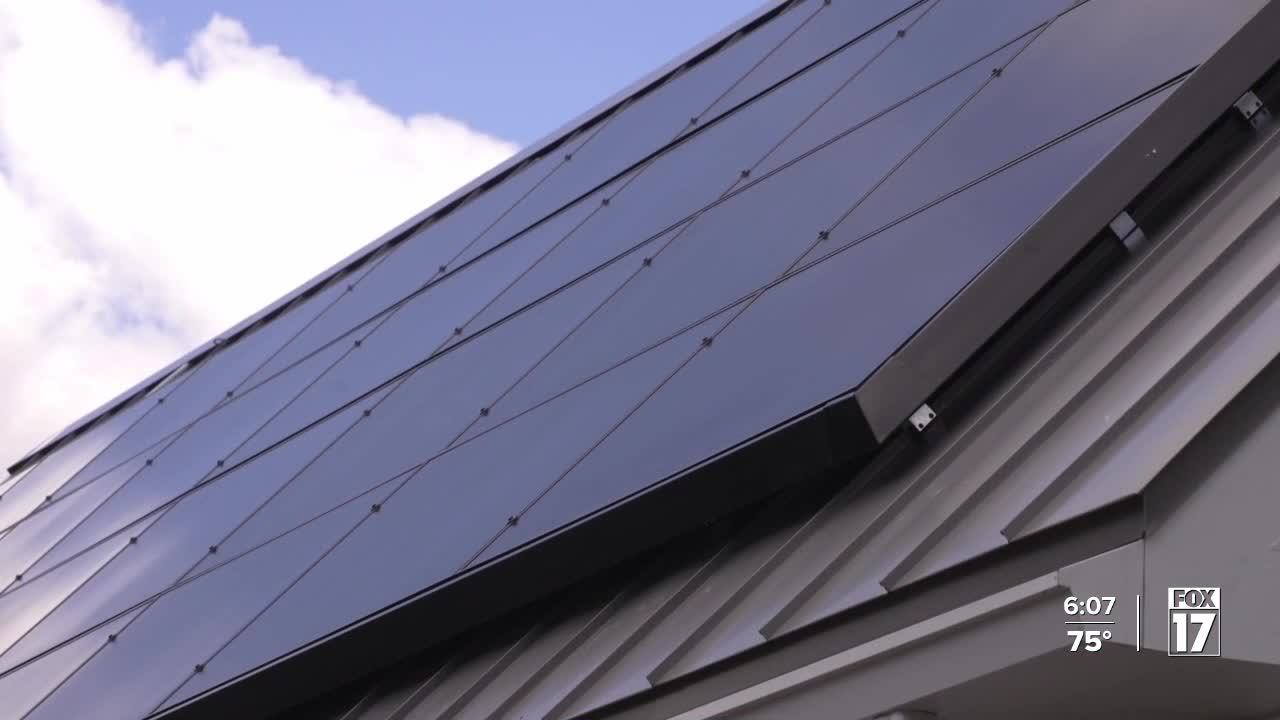GRAND RAPIDS, Mich. — The expiration of a federal solar tax credit has forced homeowners and solar companies in Michigan into a "mad dash" for a rapidly approaching, end-of-the-year finish line.
"When things get chopped from 30% to 0% in the next six months, that makes things happen much quicker and forces people to take action," said Adam Phelps, lead solar consultant for Absolute Solar.
The Michigan-based company does residential and commercial work in Kent County and also partners with the City of Grand Rapids for its SolarizeGR program.
Due to the deadline, Phelps says business has increased "two or three times" and prompted the company to hire additional technicians so that solar and battery systems can be permitted, installed, inspected and approved in time to still be eligible for the credit.

A "durable" piece of policy that's persisted through both Republican and Democratic administrations, according to solar.com, the federal solar tax credit originated during the energy crisis of the 1970s, signed into law by President Jimmy Carter.
In 2005, the credit returned under the Bush administration and has since been amended and extended multiple times, including by President Joe Biden's Inflation Reduction Act, which extended it at up to a 30% rate through 2032, after which it would have declined by 4% per year through 2034.
This meant homeowners who installed, for instance, a new solar or battery system with an eligible cost basis of $30,000 could earn a $9,000 tax credit in the year the system was placed in service.
In 2023, more than two million families claimed more than $2 billion of the credit for upgrades such as windows, insulation, heating and cooling systems, according to a report from the Associated Press, citing data from the U.S Treasury Department.
This Independence Day, though, President Donald Trump's signing of the One Big Beautiful Bill accelerated the expiration date of the solar tax credit by several years.
Now, in order to receive a tax credit, homeowners must install their new solar and battery systems by December 31, 2025.
Notably, places like churches and businesses will have more time to benefit from the incentive as the specific tax credit relating to third-party owned systems does not expire until December 31, 2027.
"In some ways, it's frustrating," Phelps said about the tax credit's expiration. "But also, it kind of gets me out of bed every day, wanting to do more."
Despite a potential drop in revenue due to homeowners who are no longer willing to invest in solar power without a tax incentive, Phelps says Absolute Solar is well-positioned for the future.
"I don't think it's going to actually reduce the amount of people we have on our staff," Phelps said. "[We] may simply keep them going on a different path, as opposed to residential."

Kent
EPA pulls funding for Michigan solar program, Lowell project put on hold
Regardless of federal policies and administrative changes, the solar consultant says panels are worthwhile for their long-term benefits.
"We know that utility rates aren't going down, so the best way to insulate yourself from them is with a renewable source of energy," he said. "In this case, that would be the sun, which is coming up every day for free."
For homeowners who may still be waffling over whether to install a new solar or battery system on their property, Phelps says that, in order to still qualify for the tax credit, they likely have less than a month to begin the permitting and application process.
"Strike while the iron is hot," he said.






